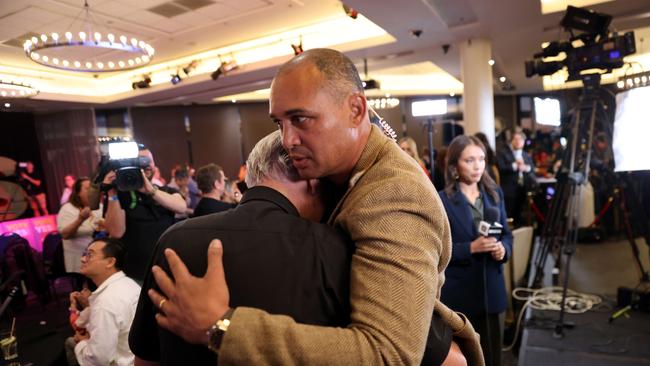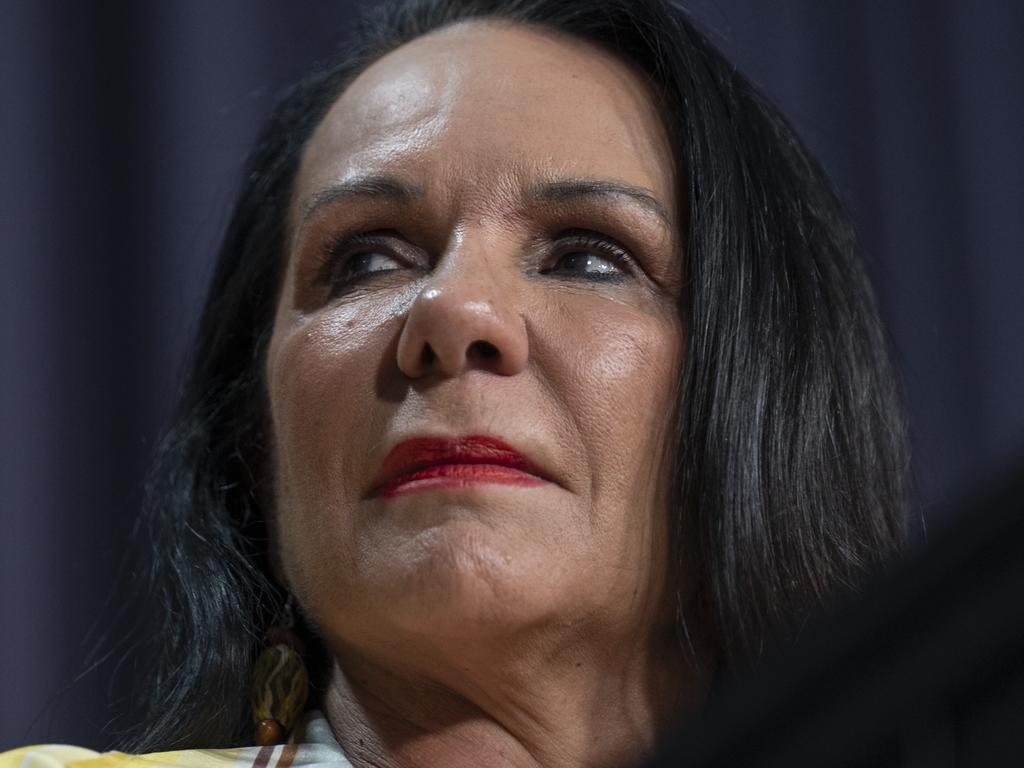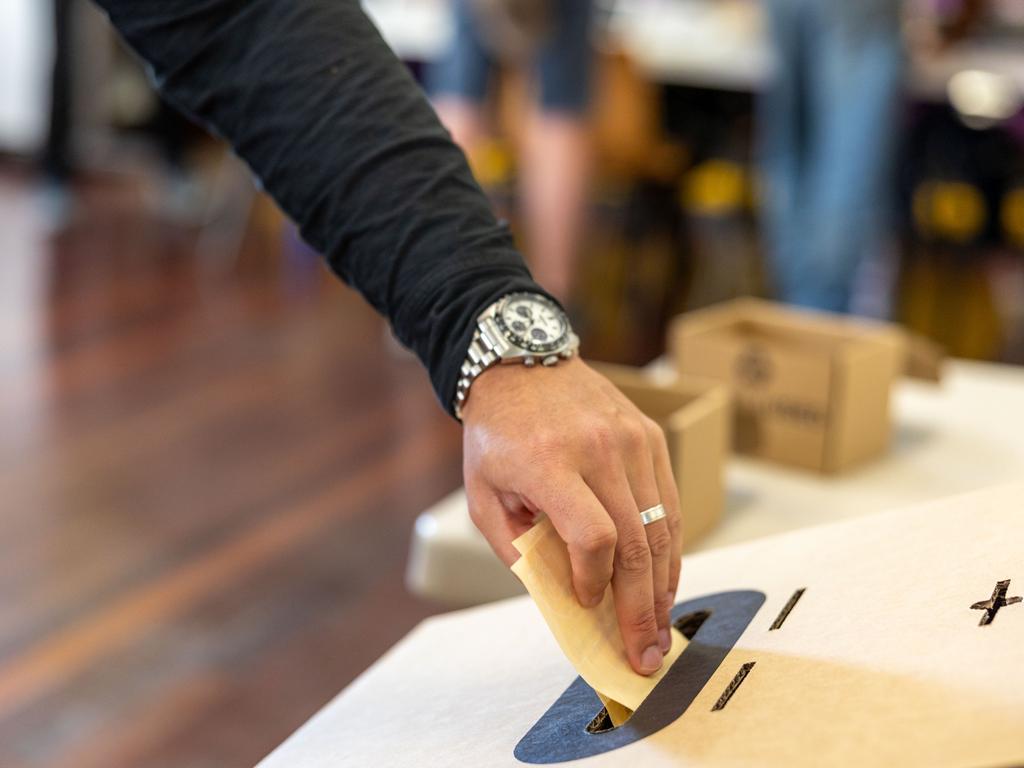Voice referendum result sees ‘recognition refused for the true owners of Australia’
Indigenous leaders who backed the voice described the defeated referendum as a ‘bitter irony’ and called for a week of silence to ‘grieve this outcome’.

Indigenous leaders across Australia who supported the voice have lamented the defeated referendum as a “bitter irony” in that newcomers who had been on the continent for 235 years would “refuse recognition to the true owners of Australia”.
“The referendum was a chance for newcomers to show a long-refused grace and gratitude and to acknowledge that the brutal dispossession of our people underwrote their every advantage in this country,” the leaders said.
“For more than six years, we have explained to our nation why the voice was our great hope to achieve real change for our families and communities.”
The statement was shared online by the Central Land Council, which represents 24,000 Indigenous people in some of the most remote communities in the Northern Territory, the NSW Aboriginal Land Council and by Yes23 co-chair Rachel Perkins.
However, The Australian has been told that an even broader collective of Indigenous leaders endorse it including all land councils in the northern territory and members of the Uluru Dialogue. One person familiar with the creation of the document said it has “widespread Indigenous endorsement”.
‘Right now there is a very visceral feeling that millions of Australians hate them.’
The statement declared that it was now a “time for silence, to mourn and deeply consider the consequence of this outcome’’.
It called for a week of silence from Saturday night to “grieve this outcome and reflect on its meaning and significance”.
“Much will be asked about the role of racism and prejudice against Indigenous people in this result. The only thing we ask is that each and every Australian who voted in this election reflect hard on this question,” the statement said.
“We will not rest long. Pack up the Uluru Statement from the Heart. Fly our flags low. Talk not of recognition and reconciliation.
“Re-gather our strength and resolve, and when we determine a new direction for justice and our rights, let us once again unite. Let us convene in due course to carefully consider our path forward.”
Another source said the names of individuals was not included on the document to give leaders time to regroup and think about the way forward.
“Right now there is a very visceral feeling that millions of Australians hate them,” the source said.
Yes23 campaign chief Dean Parkin earlier in the night declared supporters of an Indigenous voice to parliament weren’t able to cut through to Australians because of the “single largest misinformation campaign this country has ever seen”.
The extraordinary claim came as fellow leading Yes campaigner Thomas Mayo blasted the “disgusting” No campaign following an emphatic defeat of the voice referendum pushed by Anthony Albanese and Indigenous leaders.
Conceding defeat from Yes23’s referendum night function, held in the Prime Minister’s inner-west Sydney electorate of Grayndler, Mr Parkin said he hoped Australians found peace in themselves and towards Aboriginal and Torres Strait Islander people.
“To those who voted No, people of goodwill but who had doubts about what this meant, we did all we could,” Mr Parkin said.
“We did all we could to alleviate those doubts. We did all we could to ensure that the proposal was strong. We believe that the proposal remained strong. We believe that the proposal is legally safe.
“We cast the net wide across the political spectrum and the legal spectrum to ensure that what we proposed was strong, but it is clear from the result that we were not able to reach you through that.
“We were not able to reach you and cut through what has been the single largest misinformation campaign that this country has ever seen.”
A “devastated” Mr Mayo, who labelled Peter Dutton a “wrecker” minutes before the vote was called, attacked the Opposition Leader and also One Nation leader Pauline Hanson for opposing the voice model he helped create.
“We have seen a disgusting No campaign, a campaign that has been dishonest, that has lied to the Australian people and I’m sure that will come out in the analysis,” he told the ABC.
“I’m sure that history will reflect poorly on Peter Dutton, Pauline Hanson, all of those that have opposed this, and so, I don’t know what’s next but it’s just devastating.”
Mr Mayo said he was not angry at Australians but instead blamed those who had “lied” to voters.
“I am not angry at the Australian public. I think that the Australian public were ready for this. I disagree when people say that they weren’t,” he said.
“I disagree that this was a bad idea because I know that we needed that foundational change to be recognised and to have a guaranteed representative body. Not politicians that purport to speak for us.
“I am not blaming the Australian people at all. But who I do blame and who I hope that the Australian people look very closely at the next time they have a say in this democracy about who our leadership is, I hope they look at who lied to the Australian people.”
Mr Mayo labelled Anthony Albanese courageous but said Mr Dutton led a “horrible’’ political campaign against the voice.
“We put our faith in the Australian people. And, as I said, I think they were ready,” he said.
“But there has been some really horrible political campaigning from Peter Dutton and his No campaign. It‘s been disgusting to be frank.
“We‘re gonna take stock now – Indigenous people, Indigenous leaders. One thing we do know is we’re never going to give up fighting for our rights, our rightful place in this country, for recognition and a Voice because, as I said, it was the right thing to do.”
‘There was no information whatsoever’
Leading No campaigner Jacinta Nampijinpa Price, the Opposition’s Indigenous Australians spokeswoman, said it was a shame opponents of a voice had been accused of misleading the country through disinformation and misinformation.
“It was a campaign of no information whatsoever,” she said.
“We called out where the Australian people were being misled, whether it was the claim that 80 per cent of Indigenous Australians supposedly supported this when we know that they didn’t, when it was the claim that this was just a simple advisory body, when the words ‘advice’ or ‘advisory’ didn’t even appear in the question nor the proposed chapter.
“The Australian people were misled and then the Australian people saw this for themselves. That is why the Australian people decided to vote No to this proposal.”





